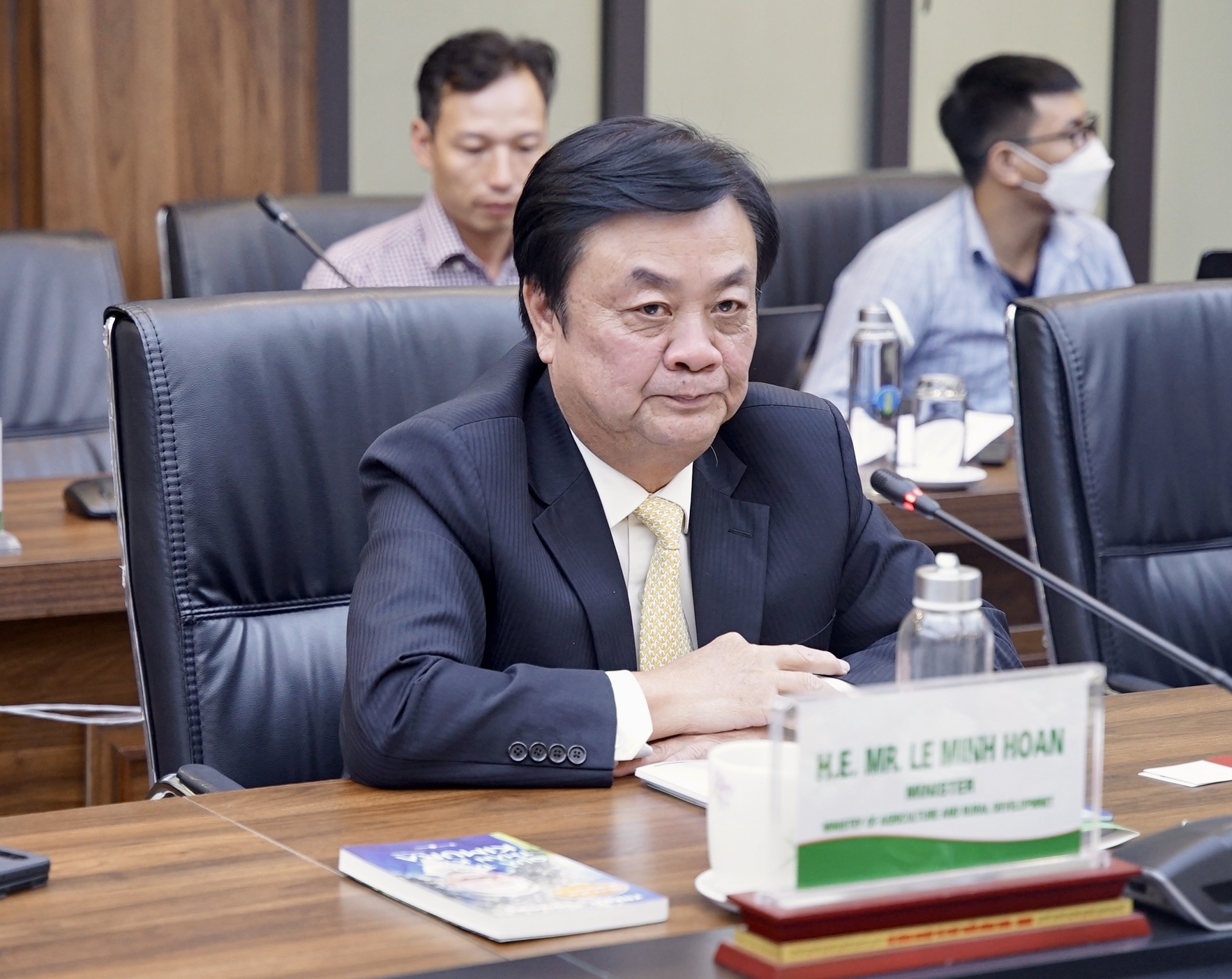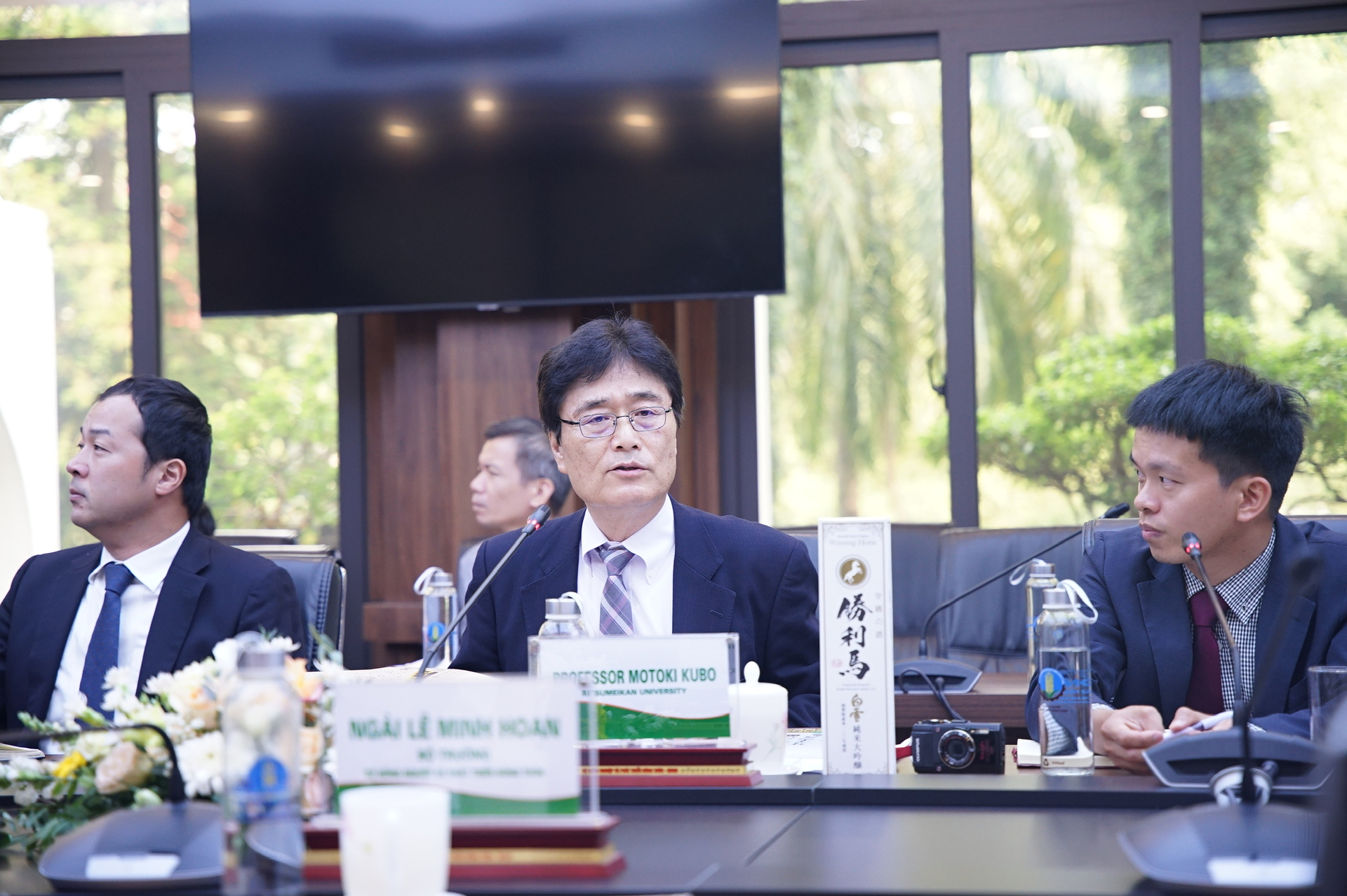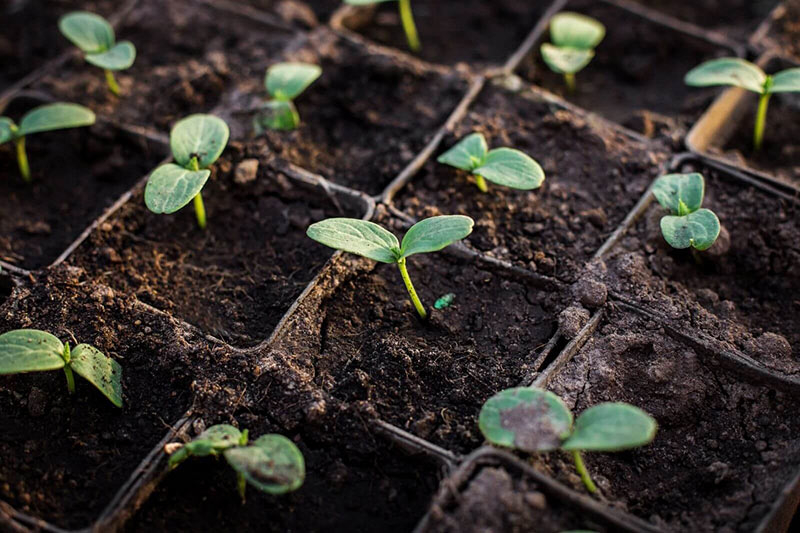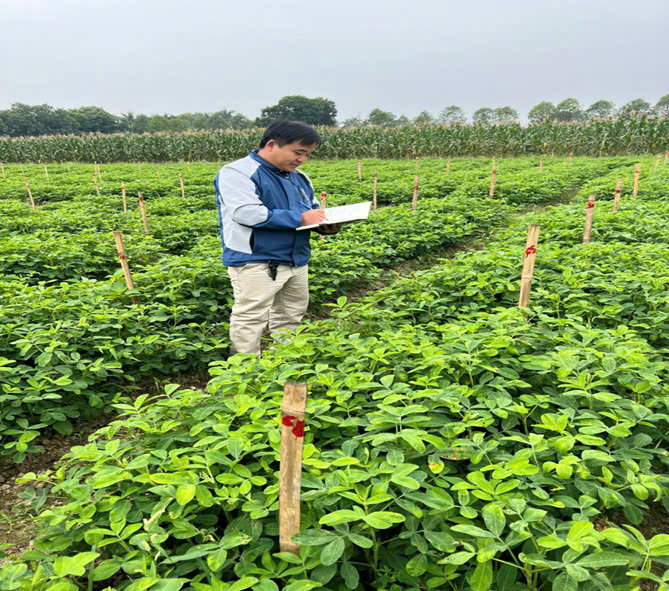(VAN) – MARD Minister Le Minh Hoan stated that there have been numerous factors preventing Vietnamese agriculture from focusing on the most fundamental aspect, soil nutrients.
Minister Le Minh Hoan met with Prof. Motoki Kubo, an expert on biological solutions for plants and soil improvement from Ritsumekan University, Japan, on July 13 in the afternoon to discuss a technical report and the direction of cooperation for the deployment of technology to diagnose Soil Fertile Index (SOFIX) in Vietnam in the near future.
Increasing yield due to soil fertility index
According to Prof. Motoki Kubo, SOFIX is the world’s first soil assessment technology based on microbiology. In agriculture, “soil tilling” is a scientific combination of chemical, physical, and microbiological properties that can be appropriately diagnosed.

Minister Le Minh Hoan received with Prof. Motoki Kubo, an expert on biological solutions for plants and soil improvement, at Ritsumekan University, Japan. Photo: Linh Linh.
However, conventional soil diagnostic techniques are only concerned with the chemical and physical properties of the soil and do not analyze the microbiological properties thoroughly. Organic agriculture lacks a comprehensive soil microbiological analysis method, and farming continues to rely on experience or intuition, making it challenging to achieve stable yields.
Since then, the SOFIX (Soil Fertile Index) technology has been developed, which utilizes 19 scientific, chemical, and physical soil properties to diagnose microbiological properties. Innovative “soil tilling” technology that proposes fertilizers to increase soil production and productivity in organic agriculture.
Mr. Kubo stated that the total number of SOFIX analysis samples tested in Japan was approximately 10,000, with positive results. SOFIX organic farming accomplishes the same or a higher yield than chemical farming while reducing production costs by 20-30% due to a reduction in pesticides and chemical fertilizers. In addition, the quality of agricultural products improves, as the amount of nitrate ions decreases and the amount of lycopene rises, etc.
Prof. Kubo’s delegation and the Provincial People’s Committees of Thua Thien – Hue and Ha Tinh in Vietnam have proposed a collaboration involving SOFIX technology.
In the city of Hue, the delegation collected a sample of the land for cultivating plum mango in the Thuy Bieu ward for analysis in Japan and conducted a preliminary assessment of the current soil’s nutrient content. Consequently, the soil attained the appropriate number of bacteria, but the content of carbon, nitrogen, phosphorus, and potassium was quite low compared to SOFIX standards, possibly as a result of the use of chemical fertilizers, which inhibited the growth of the tree. The material conversion rate is still modest, and the soil’s physical properties must be enhanced to increase permeability, etc. Prof. Kubo has a letter proposing to the People’s Committee of the province of Thua Thien-Hue that the soil of the plum mango growing area be improved using SOFIX techniques in the near future.

Prof. Motoki Kubo promises that the Japanese side will make every effort to effectively deploy SOFIX and SOFIX agricultural technologies in Vietnam and make this project a success.
Prior to April 2023, a Thanh Phat Company delegation traveled to Japan to collaborate with SOFIX technology transfer partners. The two parties discussed the scope of their cooperation in implementing SOFIX in Vietnam, including the deployment of the SOFIX technique on 1 hectare of new soil for planting plum mango trees and on some inefficient plum mango tree plantation areas. In addition, discuss the proposed construction of the SOFIX Analysis Center in Vietnam.
Currently, the two parties have concluded discussions regarding the information security contract and the fundamental cooperation contract, which are expected to be ratified during the Japanese delegation’s working visit to Vietnam from July 13 to July 17, 2023. In the near future, the parties will continue to negotiate additional contracts pertaining to the implementation of test projects and the construction of SOFIX laboratories.
“We will make every effort to implement SOFIX and SOFIX agricultural technology in Vietnam and ensure the success of this initiative,” said Prof. Kubo. “We are anticipating the support and cooperation from the Ministry of Agriculture and Rural Development, the Ministry of Science and Technology of Vietnam, and pertinent municipal agencies”.
Soil health concerns are not paid sufficient attention
The vice-director of the Soils and Fertilizers Research Institute, Mr. Nguyen Quang Hai, stated that despite Vietnam’s assessment of perennial soils, the issue of soil health, microorganisms, and soil nutrients has not been prioritized.
The MARD is developing a National Strategy on Soil Health and a National Plan for Soil Health Management, he reported. During this development, the determination of soil health indicators must consult foreign documents, particularly the SOFIX index. Mr. Hai stated that this is a comprehensive index for evaluating soil health.

Soil health, microorganisms, and nutrients in the soil are still not focused.
Based on the opinion of Mr. Kubo, Minister Le Minh Hoan acknowledged that agriculture has not paid sufficient attention to the most fundamental aspect, namely the nutrients in the soil.
“We are proud of the fact that any tree can be produced, but after three to four years, the tree deteriorates because the soil is unsuitable, leaving the farmers insecure. “As leaders, we are saddened by this situation,” the Minister said.
It is time to reposition Vietnam’s agricultural industry towards transparency, accountability, and sustainability so that the growth of agriculture does not come at the expense of the environment, biological diversity, the health of farmers, and to some extent the health of consumers, said the Minister. The Minister also stated that the SOFIX approach will be of great assistance to Vietnam’s agricultural sector.
The Minister said that he will discuss incorporating this technology into the cooperation program with the Ministry of Science and Technology. With the support and assistance of the Ministry of Agriculture and Rural Development and the National Agricultural Extension Center, Minister Le Minh Hoan is confident that Prof. Kubo and his colleagues, as well as the aspiration of the People’s Committee of Thua Thien – Hue for green agriculture, will aid in the successful and efficient implementation of the technology.
Source: VAN (https://vietnamagriculture.nongnghiep.vn/)








